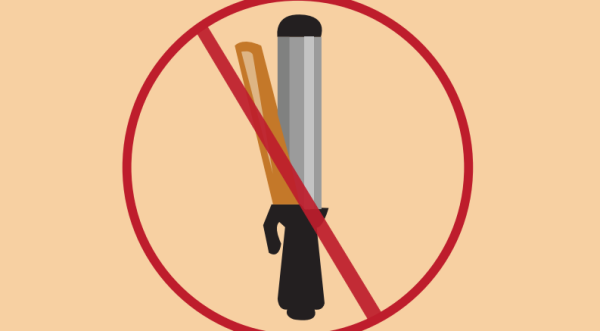Weekly News: March 23-27
March 27, 2020

Locust swarms in Africa devour crops, leaving families without anything
Beginning a few months ago, ginormous swarms of locusts have been making its way through the middle east of Africa, devouring crops. The estimated size of the locusts is about eight billion and the swarms are three times larger than the size of New York City. The crops being consumed belong to African farmers, and the destruction of the crops is leading to 20 million people at risk of famine. The best condition for locust eggs to hatch is when there are heavy rains and warm temperatures, which is exactly what happened in the Horn of Africa late last year. And now that the locusts have matured, they are seeing the worst outbreak in over 70 years. The swarms have already made their way to Pakistan and India, consuming crops there as well. The Food and Agriculture Organization has been trying to get 138 billion dollars to support affected communities and to stop the swarms. The FAO has estimated that if the locusts continue to spread, 25 million more people would lose their crops. In Kenya, scientists are currently making a computer assisted system that allows them to track where the locusts will be traveling next, and thereby giving local authorities time to prepare. Locusts can be very difficult to get rid of; governments have been spraying pesticides by aircraft and soldiers have been using spray pumps to get rid of them. If the swarms are not stopped by the time the next generation of locusts are born, then more and more people will lose their crops and their way of life.
Egypt and Ethiopia on the verge of war over Nile dispute
The countries of Egypt and Ethiopia have been becoming more and more hostile toward each other over Ethiopia’s attempts to build a dam on the famous Nile river. The dam will be the biggest in all of Africa, being a 4.6 billion dollar project. Ethiopia is hoping that the dam will provide an electrical and economical boost to its country. Egypt is worried that the dam will prevent them from getting their share of water from the Nile. With the dam already over 70 percent completed, Ethiopia wants to start filling the dam this July and get it done in seven years. Egypt thinks it should happen over 12 to 21 years so the water change is not so apparent. Ethiopia and Egypt attempted peace talks which failed, so they accepted the U.S. and the World Bank as mediators. The U.S. and the World Bank created an agreement between the two countries, but Ethiopia declined the offer and pulled out of the peace talks. Egypt officials have said that they do not deny Ethiopia’s attempt to build a dam, they just do not want to deal with the outcome of having less water in their part of the Nile. Hopefully, Egypt and Ethiopia’s feud comes to an end fast, and they work out an agreement on their crisis.
Controversial bill makes its way through the Senate, which will make it possible for the government to look through your messages
Created by senators Linsay Graham and Richard Bluthenthal, the EARN IT bill is a bill that would censor the public’s free speech on the internet. Graham and Bluthenthal want to use the bill to undermine section 230 of the Communications Decency act, which says that if someone posts something illegal online the poster will get in trouble and not the company that had the poster on it. Getting rid of this would make companies responsible for illegal content posted on their websites by individuals. If this bill goes into place, then companies will have to highly restrict what can be posted on their websites so they will not get fined by the government. And that would end up censoring innocent people. Every website would then have to follow a so-called “best practices” list so they would not get fined. The list is being created by Attorney General William Barr, who has said that law enforcement would have legal access to any digital message, if the bill goes into law. The Senate had their first meeting on the bill last week, where Graham and Bluthenthal defended their bill. It is unknown if the bill will become a law, however, because of how far the bill has gotten, there is a pretty fair chance.















